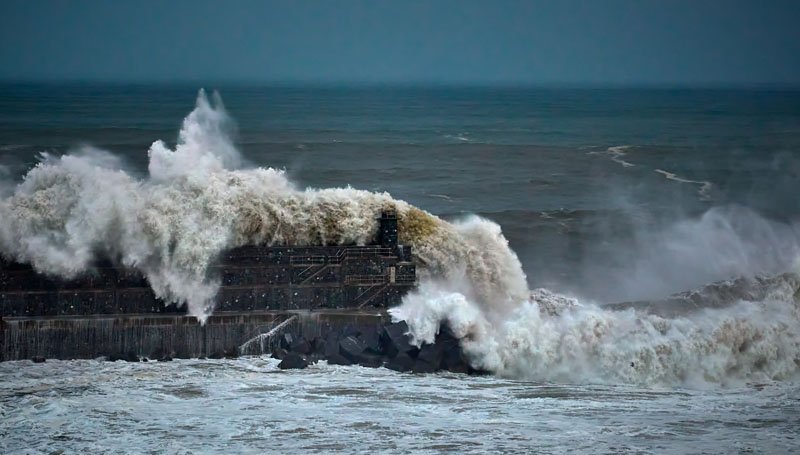The 6th edition of the Uhinak conference on climate change and coastline is now underway: to be held in Ficoba on 23 and 24 October 2024
Últimas noticias
Savour and sustainability: insects in gastronomy
Catching fish living at depths of more than 200 meters may have climatic consequences
The future of marine resources and its impact on food security
- The conference Organising Committee met in Ficoba this morning
- A meeting influenced by the echoes of COP 28 and by the report published by AZTI, which warns about the increase in temperature, rising sea levels, swells and the risk of flooding in the Bay of Biscay
(Irun, 18 December 2023). ‘Taking action and communicating in the face of climate emergency’. This was the motto of the fifth edition of Uhinak and it is still perfectly valid for the new edition of the cross-border conference on climate change and coastline, which this morning began taking its first steps with the meeting of its Organising Committee.
In addition to confirming the dates of the conference, the organisations that form part of the Organising Committee, made up of representatives from the public sector, politicians, business, technicians and experts from technology and research centres, have begun to design the conference programme.
The main objective of this multidisciplinary debate, as in previous years, is to understand the needs of managers who have to adopt measures to tackle climate change and to see what the scientific and technological community can contribute to the solution. The backdrop is a context favouring experience exchange and understanding of good practice, where collaborative coast management and maintenance are encouraged through cross-border cooperation and synergies and new business opportunities are created as a result of the measures that must be progressively taken to combat climate change.

The environmental setting in which Uhinak is going to take place
It has been 8 years since the first Uhinak was held. And the truth is that the trend in climate change and its impact on the coastline has not shown any positive progress.
AZTI, the technology centre promoting Uhinak, has recently published a complete report that provides relevant data on the accelerated and unprecedented transformation of the oceans and their resources due to the climate crisis. The report, with the main conclusions derived from decades of continuous measurements in the Bay of Biscay, sought to raise awareness, both among institutions and the population, of the need to act imminently to protect and safeguard a key element in marine and terrestrial life.
“Keeping climate change on the agenda of policy makers, experts and business is now more important than ever: the agreement reached at COP28 is far from what we had hoped for. However, it recognises the need for deep, rapid and sustained reductions in greenhouse gas emissions in order not to exceed global warming of 1.5°C above pre-industrial levels and calls on Parties to contribute to the following global efforts, in a nationally determined manner, taking into account the Paris Agreement and their different national circumstances, trajectories and approaches” says Guillem Chust, coordinator of the Global Change in Marine Ecosystems area at AZTI.
It is in this context that the Uhinak cross-border congress on climate change and the coastline takes on special relevance. A meeting point to learn about actions and solutions aimed at adopting the necessary measures for the defence and protection of the coastline to deal with the consequences of climate change. A place to learn about the needs of managers who have to adopt measures to deal with climate change and to see what the scientific and technological community can contribute to solving it. All this in a context that favours the exchange of experiences, the knowledge of good practices, promotes collaboration in the management and maintenance of the coastline through cross-border cooperation, the creation of synergies and new business opportunities as a result of the measures that have to be adopted progressively to tackle climate change.







